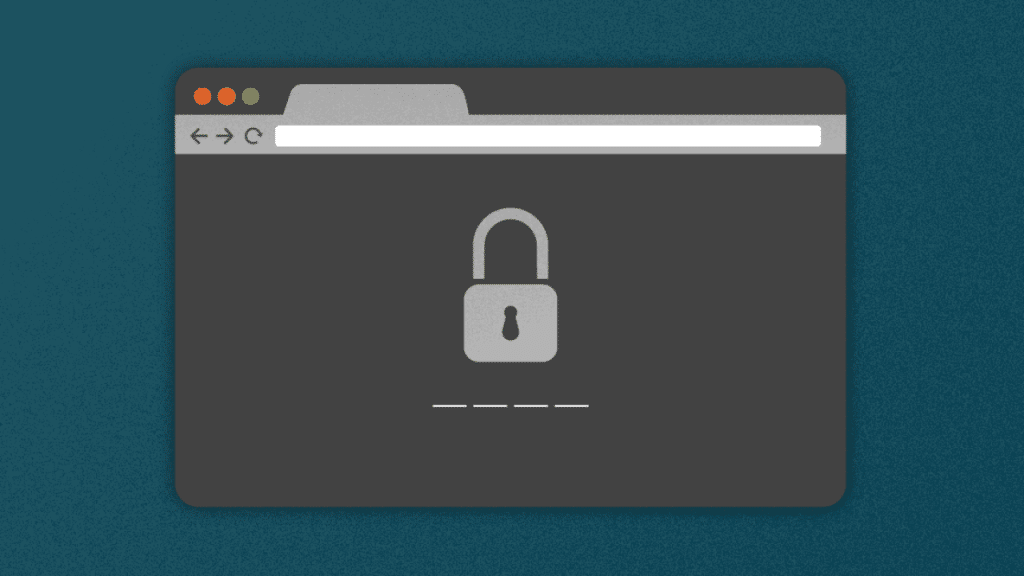You, who are looking for information on how to create a website — have you ever wondered about the importance of investing in security?
Do you know how this can bring more peace of mind to you and your website visitors daily?
You want your Digital Marketing strategy to generate an increase in revenue. However, you cannot neglect your website’s security.
It can be said that, without the appropriate resources, your pages are more susceptible to hacker attacks and all the implications that they bring.
In this article, we will explain the concept of this kind of security, how to work with it on your website, and what plugins and certificates can be used to have a good foundation. Here are the article’s topics:
- What is website security?
- How can you maintain the security of your website?
- Which WordPress plugins can be used for security?
- What security certificates does your website need?
What is website security?
A website’s security consists of every action or tool employed to prevent sensitive information from being exposed or subjected to attacks by cybercriminals. Such security measures also serve to protect users, such as e-commerce customers and blog readers, and even the website host.
Cybercriminal attacks can occur in different ways and, below, we will explain the main ones and what consequences they can bring to your website or blog.

DDoS attacks
These attacks can completely crash the website or make it extremely slow, making access very difficult for your website visitors.
Using a properly configurated Content Delivery Network (CDN) can improve your security against this type of attack, as it provides DDoS mitigation services.
Malware
This is malicious software, a very common threat that is used to distribute spam, allow cybercriminals to access the site, and steal confidential customer data, among other things.
Blacklist
The site can be removed from search engine results, such as Google’s, if any malware is found in it. In that case, a warning is shown — and it might drive visitors away from your pages.
Vulnerability exploits
In this case, cybercriminals look for weaknesses or vulnerabilities on websites and use this loophole to gain access to them. A good example of how this can happen is through outdated installed plugins.
Defacement
Here, the attack replaces all the content you have published with other malicious content, sent by the hacker.
Cross-site scripting (XSS)
Cross-site scripting (also knows as XSS), is a vulnerability present in web applications that allows cybercriminals to insert JavaScript line codes to obtain some advantages over their victims.
It’s normally done in pages that are common to all users, for example, the home page ou even posts in which visitors can leave comments. For the attack to occur it’s necessary a form that allows the attacker’s interaction, such as a search or commentary field.
SQL Injection
SQL Injection is a cyberattack technique based on the manipulation of the SQL code, which is a language used to exchange information between applications and relational databases.
As the majority of software manufacturers use the SQL-92 ANSI standard when writing SQL code, the security problems and flaws may apply to any environment that makes use of this standard for exchanging information.
How can you maintain the security of your website?
There are good practices that help increase the security of the website. We list some tips to achieve that below.
Keep WordPress up to date
Ensuring that all software is up to date is crucial in keeping your website secure. This applies to the web server’s operating system and any software you are running on the website, such as a CMS. Remember that hackers take advantage of security holes in the website to carry out their attacks.
However, if you are using a hosting solution, you do not have to worry about making these security updates, as this is the contractor’s responsibility.
Create strong passwords
It seems obvious to offer a security measure like this, as many people know that they must use complex passwords, but that does not mean that this practice is always adopted.
It is essential to use strong passwords for web server and website administration profiles, but it is also very important to make users aware of the good practices that help ensure account security.
Despite being seen as annoying by some people, having password requirements is a strategy that helps protect sensitive information. A very classic example of how these criteria work is the password requirement for more than six characters, including a number, special characters, and a capital letter.
And, last but not least, do not insert credit card numbers in passwords and do not share this information outside your bank domain.
Set up user profiles
Even if malicious people cannot change your website’s code, they can do it with user registrations. If you have the IP addresses recorded, with the respective activity histories, it will be easier to analyze the attack suffered.
A large increase in the number of registered users, for example, may indicate a flaw in the registration procedure, allowing spammers to fill the website with fake content.
Backup WordPress
If your website ever gets hacked, it is the backup that will help you recover the data lost in the incident. It is not a security strategy, as it does not inhibit attacks, but it still helps to prevent the permanent loss of files and folders.
Enable two-step authentication
With two-step verification, validation is done in both the browser and the server. The first can identify simpler faults, such as certain mandatory fields that have not been completed.
However, this can be ignored, so it is ideal to check the validations on the server. If this is not done, some malicious code can be injected into the database, leading to undesirable consequences on the website.
Which WordPress plugins can be used for security?
When looking to learn how to create a blog, it is also necessary to understand how its security can be enhanced and what tools can help. This is the case with plugins. We will show the main ones below.
Sucuri Security
The WordPress plugin from Sucuri Security is free and one of the best for all users of the platform. It is a security suite aimed at complementing the security that already exists on the website.
It offers users several security features that help make the website more secure. Its features allow you to:
- audit security activities;
- monitor file integrity;
- carry out remote malware scans;
- monitor blacklists;
- apply post-hack security actions;
- get security notifications.
Wordfence Security
This is one of the best and better-known security plugins. And not for nothing: it has powerful features such as secure login, while offering simplicity to its users.
Also, it displays traffic trends and possible attack attempts on your website.
All In One WP Security & Firewall
All In One WordPress Security and Firewall is one of the best plugins. Capable of raising your website’s security level, it offers the latest security features and best practices, according to WordPress recommendations.
Its features are easy to use and have been fully developed with a focus on users. Thus, you do not need to understand complex rules to apply them to the website.
Jetpack
This is a plugin developed by WordPress itself and, therefore, many people who use the platform are already familiar with it. The tool offers modules that help make the website faster and protect it from spam, for example.
iThemes Security
This solution is very comprehensive and offers several features that help protect the website from invasions and attacks from cybercriminals.
It is more aimed at identifying issues in themes such as weak passwords, vulnerable plugins, or even software that has already become obsolete, which are aspects that can become major loopholes.
VaultPress
The operation of VaultPress is similar to that of Sucuri Security and iThemes Security. Despite being a paid tool, this plugin is one of the most accessible ones and offers plans that cater from small blogs to big businesses.
Google Authenticator — Two Factor Authentication
We talked about the importance of two-factor authentication above, and the Google Authenticator plugin offers this possibility. You can use it alongside other tools to further strengthen the security of your website.
What security certificates does your website need?
The security certificate (or SSL certificate) comes with the website hosting itself, the service that hosts your website. However, you can choose alternatives for more complex services, such as banking. Below, learn about the main ones.
Domain Validated (DV SSL)
This certificate is responsible for displaying that lock icon in the address bar. That way, users can identify whether the page they are visiting is secure.
It is a cheap and quick way to deploy SSL since activation is done in a matter of minutes after activating the tool.
Organization Validated (OV SSL)
If you have a small business that is starting now in the digital environment, such as an e-commerce, you can invest in this certificate to show users that the website belongs to a company that exists, thus increasing reliability.
Extended Validation (EV SSL)
This certificate validates the company’s basic data, such as name, registration number, and location, in addition to showing the security lock in the address bar and the other features present in the previously mentioned certifications.
It is worth mentioning that it has a space next to the address bar to display the company’s corporate name.
SSL Wildcard
This one is suitable for those who have subdomains, such as having a website and a blog — for example, domain.com and blog.domain.com. Those can be included without having to pay extra costs.
Multi-Domain Certificate
If you purchase this solution, you receive a certificate covering up to 100 domains and subdomains. This makes it much easier to hire a certificate since it is not necessary to obtain one for each domain or subdomain that may be created.
So, if you created “.com” and “.org” domains and have subdomains from them, this is the ideal solution.
As you can see, there are several ways to increase the security of the website and the data that is available on it, including from its users. Imagine the risk of an invasion in an e-commerce, which contains the personal information of several customers. Investing in the solution is equivalent to more peace of mind daily.
Want to find out how your page speed is performing? Take the time to check out our Analyzer for free and check how to improve your website’s performance!
[rock_performance lang=”en”]







